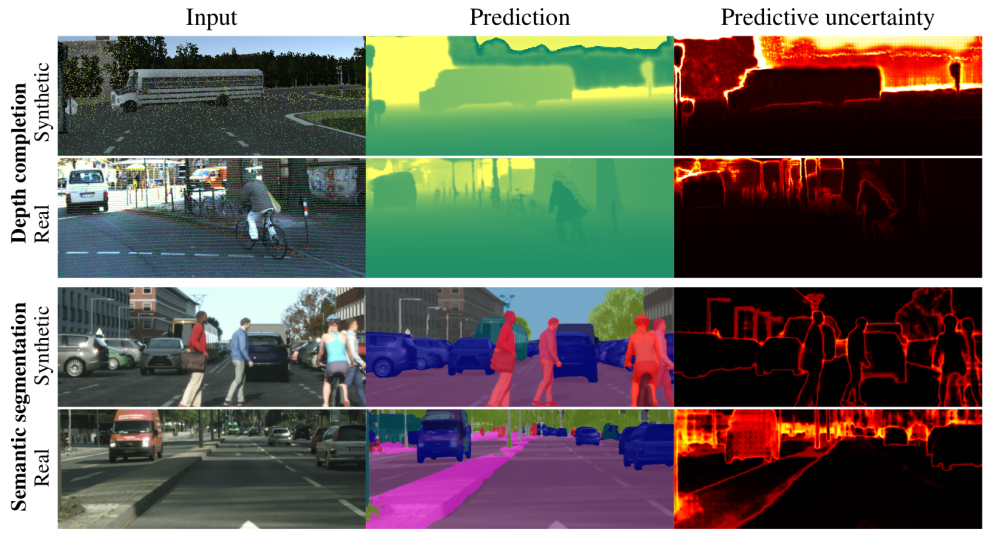Evaluating Scalable Bayesian Deep Learning Methods for Robust Computer Vision
While deep neural networks have become the go-to approach in computer vision, the vast majority of these models fail to properly capture the uncertainty inherent in their predictions. Estimating this predictive uncertainty can be crucial, for example in automotive applications. In Bayesian deep learning, predictive uncertainty is commonly decomposed into the distinct types of aleatoric and epistemic uncertainty. The former can be estimated by letting a neural network output the parameters of a certain probability distribution. Epistemic uncertainty estimation is a more challenging problem, and while different scalable methods recently have emerged, no extensive comparison has been performed in a real-world setting. We therefore accept this task and propose a comprehensive evaluation framework for scalable epistemic uncertainty estimation methods in deep learning. Our proposed framework is specifically designed to test the robustness required in real-world computer vision applications. We also apply this framework to provide the first properly extensive and conclusive comparison of the two current state-of-the-art scalable methods: ensembling and MC-dropout. Our comparison demonstrates that ensembling consistently provides more reliable and practically useful uncertainty estimates. Code is available at https://github.com/fregu856/evaluating_bdl.
PDF Abstract



 Cityscapes
Cityscapes
 Virtual KITTI
Virtual KITTI
 Synscapes
Synscapes